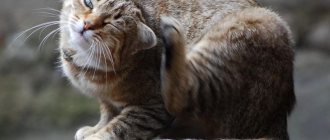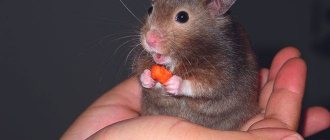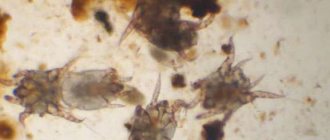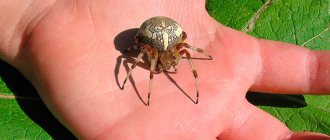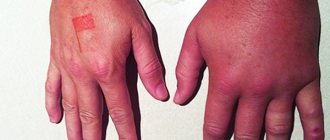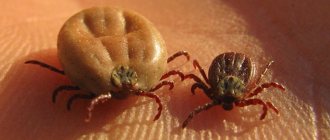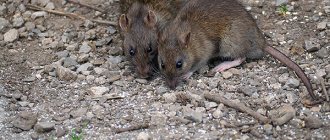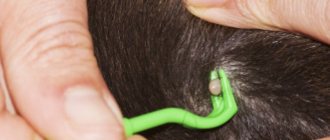Why do cats hunt insects?
Cats love to chase insects.
This is due to the fact that pets exhibit an innate hunter instinct. Even if an animal lives a domestic life and eats well, it does not miss the chance to have a race with insects. It is impossible to call your pet while hunting. He does not respond to his favorite toys or screaming. This applies to even the laziest cats.
Important: if a cat catches a fly, it will definitely eat it. Thus, the pet demonstrates its strength, agility and hunting skills.
Many pet owners get scared when their pet eats a pest. Before you run to the vet, you need to understand what the danger is and whether the problem can be eliminated on your own.
Reasons for increased interest
If your cat often eats and tracks insects, then veterinarians recommend buying a ball or an artificial mouse at a pet store. Perhaps he suffers from lack of attention.
Representatives of the cat family, despite the fact that they have been domesticated for a long time, have retained hunting instincts, and therefore react aggressively to fast-moving midges. Cats are genetically ingrained with the habits of a predator, even if the pet is constantly indoors and not outdoors. Observations by felinologists have shown that cats that live in apartments react more aggressively to flies than street animals. This is due to the fact that with a sedentary lifestyle indoors, the pet has a lot of unspent energy. Hunting for insects - flies, mosquitoes, moths or butterflies - is a kind of training. Instincts also dictate to eat the prey to show dominance. In rare cases, a kitten is afraid of large midges, but this goes away with age and increasing size.
The dangers of your pet eating flies
A cat that swallows a fly may suffer from:
- Insect bite. This applies primarily to horseflies and gadflies. The insect can sting a pet in the tongue or larynx.
- Helminth infections. Flies are carriers of germs and worms. Once in a favorable environment, they begin to actively develop, thereby causing harm to health.
Important: in case of a bite, swelling of the larynx is possible. Without timely assistance, the pet will suffocate.
A housefly is not capable of biting a cat when he is hunting for it, but a gadfly or a live fly can do this.
There are also indirect dangers associated with the process of hunting insects, namely:
- the cat is capable of falling out of a window or balcony;
- an animal may break a vase and then injure itself on the fragments.
To avoid problems, it is best to remove breakable items and close windows.
What to do if a cat ate a fly
The situation when a cat ate a fly is familiar to every pet owner. This happens not only with street or village purrs. Even apartment cats will not deny themselves such pleasure. But how safe such a phenomenon can be for living creatures and what consequences await. After all, many insects are capable of releasing very dangerous poison or simply stinging.
Why does a cat chase a fly?
The answer to this question should be sought in nature. After all, it was she who instilled in the animal the real skills of hunters, wild and dexterous. This fact is the most important explanation for this behavior.
If a cat can catch a fly, it will definitely swallow it. This is an instinct that was developed many years ago. This way they will consolidate their success and be able to assert themselves.
General clinical picture
Unfortunately, as such, the overall clinical picture is either absent or very blurred. This is due to the incredible variety of potential toxins and poisons, the clinical manifestations of poisoning with which also vary significantly. Since many toxins enter the animal’s body through food, responses from the gastrointestinal tract (vomiting and diarrhea) are typical. The problem is that the first signs of neurological pathologies often develop (tremor, wooden gait, seizures, excitability, depression or coma). All of them are characteristic of many viral and parasitic diseases, and therefore it can be extremely difficult to suspect poisoning in time.
Possible manifestations of damage to the respiratory system (coughing, sneezing, difficulty breathing). When toxins penetrate through the skin, a response develops in the form of inflammation and swelling of the skin. They can easily be confused with symptoms of allergic reactions. The development of liver failure (jaundice, severe vomiting) and/or kidney failure (sharp increase in thirst, lack of appetite and weight loss) is very typical. Considering that the effect of many toxins is complex, all the symptoms described above can be combined and very blurred, which makes diagnosis extremely difficult.
It is important to remember that even stopping all signs of acute intoxication by administering an antidote (if it exists at all) does not guarantee a complete recovery of the affected animal. Moreover, in some poisonings, the liver and kidneys are irreversibly damaged (for example, due to improper treatment with antibiotics), which dooms the animal to constant treatment throughout its entire life. Let us also note that if the nervous system is damaged (which also happens quite often), the cat will almost inevitably develop various neurological disorders in the future, including seizures (reminiscent of epileptic attacks).
Possible consequences
Contact with plants that are dangerous to cats can lead to various consequences. The negative influence of some colors can accumulate, causing the animal's health to deteriorate over time. Other plants can lead to serious poisoning and a sharp deterioration in the animal’s condition.
Symptoms of allergies caused by plants:
- tearfulness;
- nasal discharge;
- frequent sneezing;
- the appearance of inflammation on the skin;
- the animal constantly scratches one place (muzzle, withers or another).
If harmful components enter the body, the following symptoms may occur:
In case of poisoning, the following symptoms are observed:
- frequent and severe vomiting (sometimes mixed with blood);
- diarrhea;
- significant increase in body temperature;
- complete loss of appetite;
- a sharp decline in activity, apathy.
In case of severe poisoning, the animal’s condition deteriorates sharply and quickly. Intoxication leads to disruption of internal organs, which can result in the death of the animal. This is why in case of poisoning you should immediately consult a doctor. Sometimes the hours count!
What danger awaits
A cat hunts a fly In itself, the fact that a cat catches and eats flies is completely safe. There is nothing in the body of insects that the body of a cat cannot digest. Even the dirt carried by the flies is not dangerous.
But this kitten’s hobby cannot be left without due attention. During the chase, the cat may be so carried away that he will not notice how the fly flies out through an open window or balcony. This is quite normal for a flying insect, but a pet can be seriously injured. This is especially true for residents of the upper floors. To prevent this from happening, there should always be reliable mosquito nets on the windows. They will save you from flies and prevent the animal from flying away.
Important!
Flies are carriers of helminth eggs. And if the cat swallows them, then there is a chance of infection. Therefore, veterinarians advise all owners of domestic cats to take preventive measures to combat worms. This should be done even by those who do not walk around and live in an apartment permanently. The difference between street and indoor cats is the frequency of worming. For domestic cats, it is enough to give an anthelmintic drug once every six months, for street cats every 2-3 months.
During the hunt, cats become simply uncontrollable, so they can easily break their favorite vase or scratch expensive furniture. Very often curtains or drapes suffer.
It will be unpleasant if the cat decides to catch a wasp, bee or bumblebee. It can sting an animal, and the consequences depend on the degree of endurance of the body. Some pets cope with swelling of the bite site, while others begin vomiting, diarrhea, and may foam at the mouth. The most dangerous bite is to the palate or larynx. It will cause swelling and the animal may well suffocate. If a dog or cat is bitten by a bee, immediate help will be required in the form of antihistamines.
Thus, a cat eating flies is a completely normal and natural phenomenon. The animal is just having fun. The pet owner’s task is to ensure the safety of his pet, and in the event of a fly or stinging insect bite, to monitor the body’s reaction.
Cats, regardless of their age, are playful. They try to catch everything that moves. Flies were no exception. Seeing a low-flying or crawling insect, pets attack it. In most cases, they eat the pest. The question arises, how harmful is this and what to do if a similar situation occurs? We will try to get answers within the framework of this article.
Why do cats lick themselves?
The reasons why these animals lick themselves all the time are not always as harmless as they seem.
Sometimes such licking indicates a disease. To understand that it is time to sound the alarm, the owner of such a pet should know why the cat licks itself all the time, paying special attention to certain areas of the body, for example, the area near the anus or nose
Hygiene, grooming
After contact with other animals and people, cats tidy up their fur. During the washing process, the pet is relaxed and completely focused on the cleanliness of its coat.
When washing, he does not focus on one part of the body, paying equal attention to the tail, paws and muzzle. Usually, after the procedure is completed, the animal quietly dozes
Self-soothing, stress relief
Cats are very vulnerable animals. Any event, be it a change of residence, a trip to the veterinary clinic, family quarrels, the arrival of a new pet in the house or rough treatment, can cause stress in them. Some cats, experiencing strong emotional stress, begin to actively lick their lips. Why do they do this and how does it relate to negative emotions?
Some people, when worried or nervous, bite their nails or bite their lips. Cats lick themselves. So both of them try to protect themselves from an unpleasant situation, transferring the reaction from an inaccessible object or action that they cannot influence to an accessible one.
Trying to get rid of skin parasites
If your pet constantly licks itself and shakes its head, creating the feeling that it is gnawing something out of its fur, most likely it is tormented by skin parasites: fleas, lice eaters, ticks. An animal infected with ectoparasites becomes restless and lethargic, sleeps and eats poorly, and the condition of its coat deteriorates. It is wrong to think that outdoor pests can only affect stray cats or those who are often outdoors. Any pet, no matter how well-groomed it may be, can pick up fleas or ticks simply by rubbing against the owner’s leg after returning from a walk.
Skin itching due to allergies, fungal infections, metabolic disorders
Your pet may constantly lick itself to relieve itchy skin, which is caused by:
- allergic reaction to food, dust, pollen of flowering plants, medications, etc.;
- skin lesions due to fungal infection;
- metabolic disorders.
Allergies do not pose a danger to a cat if treatment is started in a timely manner. Usually it is enough to exclude your pet from contact with the allergen, and the symptoms of an allergic reaction will disappear. A fungal infection can be easily recognized by a number of signs:
- baldness of certain parts of the cat’s body;
- bloody sores covered with scabs;
- dryness, peeling, redness or, on the contrary, pallor of the affected skin.
Itching in the anus due to worms
If your pet is licking under its tail, this may indicate that it has worms. Some types of helminths cause itching in the anus, causing the animal to become restless, sleep poorly and eat poorly. The cat owner needs to examine the contents of the cat's litter box. When a pet is infected with helminthiasis, parasites can be found in its feces. Ignoring the symptoms of this disease can have serious consequences for your cat's health.
Inflammation of the paraanal glands
Why does an animal lick its anus, ride its butt and chew its tail? This behavior may be caused by inflammation of the paraanal glands, which are located on both sides of the anus and serve to produce a special odorous substance necessary for contact with fellow animals. Sometimes these glands become clogged and inflamed, causing significant discomfort to their owner. This usually occurs due to frequent constipation and decreased muscle tone.
Animals over 4 years of age are most susceptible to this disease. The inflammatory process cannot be ignored, as it can lead to blood poisoning, and in especially severe cases, to the death of the cat.
Cats in heat
If your pet has a clear, odorless discharge, she raises her pelvis, throws her tail to the side and actively licks her genitals, it means she is in heat. During the estrous cycle, a cat may compulsively display its genitals to members of the household.
If her behavior is ignored, she turns her attention to inanimate objects: scratching post, corners, doorways
Can cats eat flies and what are the benefits?
Cat and fly If a cat eats flies, then, first of all, he trains his hunting skills. This is a call of nature and a kind of training. In addition, a live target causes much more excitement in a cat than bells or rubber mice purchased in specialized stores.
For cats, movement is a necessary and vital element of life. Only a brave and trained predator can survive in the wild. Pets have no choice but to hone their skills on flies, flies and other insects.
In nature, a cat is a representative of the most advanced predators. At home, caring owners surround their pets with excessive love, feed them with special food and suppress their natural skills. Regular exercise helps cats stay in good shape.
On a note!
It is also important to remember that flies are a valuable source of protein and chitin, which your pet needs for the health and growth of claws, teeth and fur. And chitinous components serve as the basis of the top cover. The cat will not be able to completely meet its daily requirement by eating flies, but a small part will still be absorbed.
The cat eats flies! Is it harmful or dangerous for the cat?
The cat catches and eats flies! Is it harmful for the cat? Dangerous?
No, it’s not dangerous, it’s meat for him, but that’s if the flies aren’t poisoned.
If you poisoned them with dichlorvos, then he may be poisoned by them.
So look, there’s nothing harmful, even people eat insects in some countries, let alone animals.
Cats sometimes catch flies, this is normal for them, because they belong to predators. It is also natural that the cat then eats the caught “prey”. All predators do this: they catch, then feed, swallowing the “prey”.
Fluffy pets often play with a fly for a long time when they have already knocked it down, either letting it fly away or catching it again. And then they eat it.
Is a fly dangerous for cats and why do they eat flies if there is good food and homemade food? In fact, eating flies is not dangerous in any way, but is only somewhat disgusting to observe from the outside. Having swallowed a fly, the cat will receive protein, some chitin and nothing harmful. It is much worse if the pet chases stinging insects.
Many cats, especially young ones, jump and catch flies, and then eat them. Nothing harmful will happen. Well, he’ll catch two or three flies a day, but it’s unlikely that he’ll catch more. Many peoples do not eat any kind of insects and are still alive. So, consider that flies are a delicacy for a cat.
I don't think anything will happen to your cat. Insects and insects, they are not poisonous, after all. Cats eat mice, they are no less infected. In general, animals will never harm themselves (unlike some representatives of homo sapiens).
The cat swallowed a fly: danger and first aid
Cats, regardless of their age, are playful. They try to catch everything that moves. Flies were no exception. Seeing a low-flying or crawling insect, pets attack it. In most cases, they eat the pest. The question arises, how harmful is this and what to do if a similar situation occurs? We will try to get answers within the framework of this article.
Cats love to chase insects. This is due to the fact that pets exhibit an innate hunter instinct. Even if an animal lives a domestic life and eats well, it does not miss the chance to have a race with insects.
It is impossible to call your pet while hunting. He does not respond to his favorite toys or screaming. This applies to even the laziest cats.
Many pet owners get scared when their pet eats a pest. Before you run to the vet, you need to understand what the danger is and whether the problem can be eliminated on your own.
A cat that swallows a fly may suffer from:
- Insect bite. This applies primarily to horseflies and gadflies. The insect can sting a pet in the tongue or larynx.
- Helminth infections. Flies are carriers of germs and worms. Once in a favorable environment, they begin to actively develop, thereby causing harm to health.
Important: in case of a bite, swelling of the larynx is possible. Without timely assistance, the pet will suffocate.
A housefly is not capable of biting a cat when he is hunting for it, but a gadfly or a live fly can do this.
There are also indirect dangers associated with the process of hunting insects, namely:
- the cat is capable of falling out of a window or balcony;
- an animal may break a vase and then injure itself on the fragments.
To avoid problems, it is best to remove breakable items and close windows.
If a pet has swallowed an insect, it is necessary to immediately examine it, as there is a possibility of a bite. Otherwise, the animal may die.
The inspection must be done carefully. If a bite mark is noticed in the oral cavity, it is recommended to immediately go to the veterinarian. To alleviate your pet's condition, administer antiallergic medications:
- Prednisolone;
- Dexamethasone.
Important: Call your veterinarian before administering the drug. A specialist will help you calculate the dosage.
Most often, 0.06 ml of medication is administered per kilogram of live weight.
If the bite was made near the muzzle, that is, not in the oral cavity, it is necessary to treat the wound. This is done with a soda solution. Add 10 mg of soda to half a liter of water. To avoid an allergic reaction, feed your pet ¼ Tavegil tablet.
When the danger of edema has been eliminated, it is better to deworm the cat. This is only done if the procedure has not been performed before.
It is impossible to prevent a cat from catching flies, so it is best to prevent their appearance and spread in the house. This can be done using:
- Sticky tapes. Such “traps” will reduce the number of insects in the apartment, thereby preventing the pet from catching them.
- Fumigators. The device repels pests, preventing them from entering the room.
- Folk methods. It is best to place basil or cloves throughout the rooms. Thanks to the aroma of plants, flies will leave the apartment.
To avoid the appearance of helminths, pets need to be vaccinated 2 times a year. You should also periodically show the animal to the veterinarian, even if it is healthy.
Strange as it may sound, catching and eating flies brings some benefits to the cat. First of all, the pet trains its hunting skills. It is more interesting to play with a living “target” than with soft toys.
Exercise keeps cats in good shape. This affects their health and mood. At home, some owners feed their pets, thereby inhibiting their natural skills.
Important: to prevent cats from eating insects, in addition to food, give them vitamins.
What to do if a cat ate a fly
It’s very funny to watch how a lazy furry pet suddenly becomes more active and begins to chase an invisible victim around the house with genuine interest. A fly caught his attention. After many attempts to catch her, he manages to do it. But how to react if a cat ate a fly. After all, a pet has no problems with food, and eating insects disgusts its owner.
Hunting flies
Every cat, despite being kept at home, is a predator. And any quickly moving object can arouse her interest and desire to catch it. Even a kitten from a very young age will try to follow a moving target, even though no one taught him this. Hunting instincts are stored in the cat’s subconscious and appear almost every day:
- playing with papers;
- in catching insects;
- chasing balls and bouncers;
- chasing sunbeams;
- trying to catch a person by the legs.
During an enthusiastic pursuit of insects, a cat may find itself in dangerous situations - jumping out of an open window after a fly, jumping onto a switched-on stove burner, falling unsuccessfully or hitting itself hard.
The buzzing and flickering of a fly on the window is a call from a small predator to catch its prey. But the representative of the cat family is so carried away by the process of capture that he can turn over everything in the house: flower pots, figurines, tear the curtains. A harmful fly will try to hide from the predator and fly throughout the apartment. And the cat will be hot on her heels.
After the cat reaches its goal, it can play with its victim for a long time. The cat likes to release the caught fly and wait for it to fly or crawl again. Even when the insect no longer shows signs of life, the cat will nudge it with its paw to check its vitality.
Why is eating an arthropod dangerous?
In most cases, after a long chase of insects, the pet catches and eats flies. It’s strange to see how a well-fed cat eats flies, having a variety of food and treats on its menu. This is not the cause of food shortages. For a cat, any hunt must culminate in the capture and eating of its prey, or at least taking it for a bite. This is also controlled by strong natural instincts implanted in the animal's subconscious several thousand years ago.
If a furry huntress swallows a bug during the game, there is no need to worry about it. The small fly represents a microscopic dose of quinine and protein. There is nothing harmful to your pet's health in an ordinary fly. But during hunting or when swallowing certain types of insects, problems may arise:
- wasp;
- bee;
- hornet;
- horsefly;
- bumblebee and others.
Stinging arthropods in most cases will try to defend themselves and attack a curious predator. If a cat is bitten, a severe allergic reaction may occur. It manifests itself in swelling of the stung part of the body, severe pain, and general malaise. It is recommended to take the injured animal to a veterinarian for medical attention.
Carrion flies and any others prefer to look for food in garbage dumps, landfills, and rotting debris, where many bacteria accumulate. These insects can carry helminths on their legs, and when they get into the cat's stomach, cause unpleasant consequences. But in most cases, the animal’s immune system must cope with such a small amount of harmful substances.
Cat and fly
Whether cats can eat flies depends on the sensitivity of their stomach. In some breeds, the insect's hard wings can irritate the stomach and subsequently cause the animal to vomit.
If a cat eats flies and really enjoys hunting for them, don't stop them. For your furry pet, the opportunity to hunt is a necessary activity. The cat hones its agility, flexibility, jumping ability and endurance, which is an integral part of a healthy lifestyle for the animal.
In order to preserve the home interior and prevent injuries to the cat, it is better to protect the house from insects. And as entertainment for the cat, use rustling paper tied on a long string, bouncing balls or a special moving toy for cats.
What could be the consequences?
Eating flies in itself is not harmful to cats. Moreover, the animal is not able to eat a large number of insects in order to fill its stomach with chitin. But the danger still exists and it lies not in the flies themselves, but in the process of catching insects.
Cats are unusually concentrated during a hunt and do not notice dangers. Thus, cats living in apartments and catching flies while sitting on the balcony run the risk of falling out onto the street and getting seriously injured. Additionally, your cat may not be able to tell the difference between a fly and another flying insect, such as a bee or wasp.
During the hunt, a pet may be bitten by a stinging insect and the consequences can be very different. If a bee bites a cat before it enters the oral cavity, the animal may end up with a slight swelling in the area of the injury. If a poisonous insect stings a cat on the palate or tongue, an allergic reaction called anaphylactic shock may occur, leading to the death of the pet.
The owner’s task is to closely monitor his pet, trying to protect the home as much as possible from the penetration of various insects. Thereby protecting your pet from possible falls from balconies, injuries or bites of poisonous insects.
Cat owners whose pets persistently continue to hunt for flying animals are advised to purchase mosquito nets for their windows. Thereby preventing flies or other flying insects from entering the living space.
Negative consequences of hunting
An ingested fly can cause harm to a pet if it does not receive regular preventative treatment for worms, because the midge carries the parasite's eggs. Veterinarians insist that indoor animals should be given anthelmintic medications up to 2 times a year, and those walking on the street - at intervals of 2 months. If a worm appears in the animal’s feces, which looks like a white thread, then it is necessary to urgently begin treatment with sprays, drops or tablets.
Veterinarians clarify that the risk of contracting infectious diseases from midges is minimal, but if the cat constantly catches and eats flies, the probability increases. Therefore, veterinarians recommend vaccinating animals for preventive purposes. According to felinologists, the greatest danger is open windows, through which a pet can jump out in the heat of the hunt. The consequences of falling from a height are fractures or death. A cat that is playing has little control over itself and does not assess the danger, so if flies often land on indoor surfaces, you need to install nets on the windows and attach adhesive tapes to the ceiling.
Care, maintenance and treatment of your pet
7 reasons to change your cat's food
It is not recommended to regularly change food or products in the diet without reason when eating natural food,…
5 first symptoms of calicivirus in cats
A number of other infections also cause problems in the respiratory system, but one of the most commonly diagnosed...
Osteoporosis in cats
Osteoporosis, when diagnosed early, is treatable. Therefore, it is very important to know the reasons...
Prevention of dental diseases in cats
Dental problems occur quite often in cats and provoke disorders throughout the body.…
Causes of obesity in cats
Obese animals are more likely to suffer from cardiovascular pathologies, endocrine disorders...
4 signs of ear mites in a cat
You need to recognize the disease immediately in order to consult a doctor in a timely manner and undergo appropriate…
5 main signs of panleukopenia in cats
Panleukopenia is a highly contagious disease that often occurs in an acute form.…
Pedigree of the cat
The pedigree contains all the necessary data that allows the animal to participate in exhibitions,…
Veterinary Directory of Animal Diseases For animal owners
- Diseases and treatment of cats
- Cat breeds
- Sterilization of cats
- Castration of cats
- Cat at home
- Cat vaccination
- Treatment of cats for fleas, worms and ticks
- Feeding the cat
- Kittens
- Cat health diagnostic service
5 first symptoms of calicivirus in cats
A number of other infections also cause problems in the respiratory system, but one of the most commonly diagnosed...
Prevention of dental diseases in cats
Dental problems occur quite often in cats and provoke disorders throughout the body.…
Causes of obesity in cats
Obese animals are more likely to suffer from cardiovascular pathologies, endocrine disorders...
4 signs of ear mites in a cat
You need to recognize the disease immediately in order to consult a doctor in a timely manner and undergo appropriate…
Dream Interpretation - Cat, cat
You have a hidden and very cunning enemy who is harming you on the sly. Black cat - be careful when communicating with strangers. Scratched or bitten you - you will be subjected to slander. Beautiful, pure - an insidious seductress will stand in your way. With kittens - an attempt to weaken your peace of mind through humiliation of your loved ones. Kill - the vile and insidious plans of your enemies will destroy you. To be caught is selfless service to someone to the detriment of oneself. Attacks - expect enemies to attack soon. Washing - the resulting calm is temporary, this is the calm before the storm. Hearing meowing means you will be drawn into an unpleasant situation due to the unworthy behavior of people unfamiliar to you. Purrs and caresses - an enemy is hiding under the guise of a friend. Play - you will become a victim of other people's intrigues. Crosses the road - competitors will be able to deprive you of the income you were counting on. A cat in a bag or basket is a betrayal of a loved one. Pulling by the tail - you will be drawn into an illegal matter
Catches a mouse - enemies will take advantage of your carelessness. Climbing a tree means an ill-wisher among high-ranking people. Cats are fighting - a series of minor troubles and quarrels awaits you. Imagine that you are unleashing a pack of huge dogs on a cat (see
Dog)
Cats are fighting - a series of minor troubles and quarrels awaits you. Imagine that you are unleashing a pack of huge dogs on a cat (see Dog).
How to protect an animal
It is impossible to prevent a cat from catching flies, so it is best to prevent their appearance and spread in the house. This can be done using:
- Sticky tapes. Such “traps” will reduce the number of insects in the apartment, thereby preventing the pet from catching them.
- Fumigators. The device repels pests, preventing them from entering the room.
- Folk methods. It is best to place basil or cloves throughout the rooms. Thanks to the aroma of plants, flies will leave the apartment.
To avoid the appearance of helminths, pets need to be vaccinated 2 times a year. You should also periodically show the animal to the veterinarian, even if it is healthy.
Sources
- https://zelenplaneta.ru/muhi/kot-proglotil-muhu-opasnost-i-pervaya-pomoshh.html
- https://rci76.ru/muhi-i-moshki/pochemu-koshki-edyat-muh.html
- https://vh-dv.ru/muhi/pochemu-koty-edyat-muh.html
- https://ivethelp.ru/koshki/koshka-est-mux/
[collapse]
Helping a cat
If a pet has swallowed an insect, it is necessary to immediately examine it, as there is a possibility of a bite. Otherwise, the animal may die.
The inspection must be done carefully. If a bite mark is noticed in the oral cavity, it is recommended to immediately go to the veterinarian. To alleviate your pet's condition, administer antiallergic medications:
- Prednisolone;
- Dexamethasone.
Important: Call your veterinarian before administering the drug. A specialist will help you calculate the dosage.
Most often, 0.06 ml of medication is administered per kilogram of live weight.
If the bite was made near the muzzle, that is, not in the oral cavity, it is necessary to treat the wound. This is done with a soda solution. Add 10 mg of soda to half a liter of water. To avoid an allergic reaction, feed your pet ¼ Tavegil tablet.
When the danger of edema has been eliminated, it is better to deworm the cat. This is only done if the procedure has not been performed before.
A cat catches a fly: why is it dangerous?
Cats love to catch flies and other flying insects, especially if they have no other hunting practice. However, such actions should not be encouraged.
Flies are one of the most well-known carriers of parasites and diseases. Most often, a cat that eats a fly becomes infected with worms and protozoa.
Another, less obvious danger is that, having become accustomed to catching flies, a cat can switch to other flying insects, and they are not all harmless. A bee or wasp sting on the lip or nose can end very badly for a cat. Such bites are especially dangerous in dachas, where it is difficult to find medicine and a qualified specialist.
